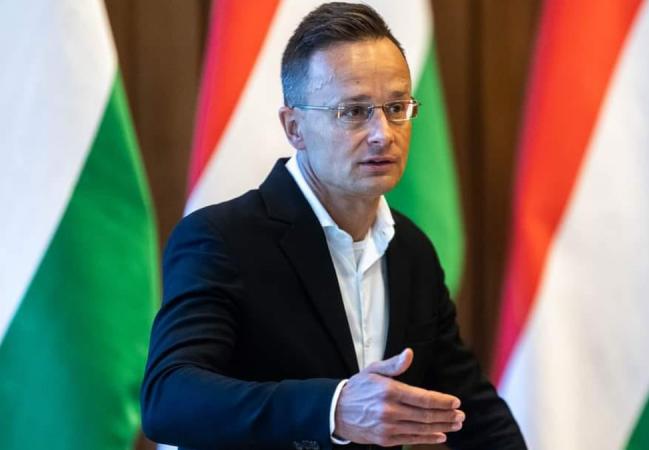Hungary rejects Croatia's offer to provide it with oil in exchange for Russian oil
Szijjártó accused Croatia of a "joint attack on Hungary with the European Commission" and called it an "unreliable transit country"

The Hungarian government has rejected Croatia's offer to use its pipeline as an alternative to oil imports from Russia. The European Union requires Hungary and Slovakia to find a replacement for oil from Russia as soon as possible, but Budapest is not interested in doing so, the Financial Times reports.
This week, Croatian Prime Minister Andrej Plenkovic sent a letter to the European Commission, reporting "the lack of congestion in the oil pipeline that runs through the country, starting from the Adriatic coast. The infrastructure for oil imports exceeds Croatia's needs and can provide landlocked countries with sufficient raw materials that could "reduce or eliminate their dependence on Russian oil," according to the letter, which was seen by the Financial Times.
The Adria pipeline has a capacity of 14.3 million tonnes per year. Currently, Croatia buys 2 million tonnes, Serbia – 3.3 million, and Hungary's MOL has a contract for 2.2 million by the end of 2024. This leaves 6.8 million tonnes of capacity unused.
Hungarian Foreign Minister Peter Szijjarto responded sharply to Plenkovic's proposal. He wrote on Facebook that it was part of an attack on Budapest agreed with the European Commission.
Siyarto accused Croatia of "not being a reliable transit country", raising transit fees to five times the market average since the start of the war in Ukraine, not investing in capacity expansion, and not allowing MOL to sign long-term contracts, although Plenkovic had offered to do just that.
"The cessation of supplies from the east will make Hungary and Slovakia completely dependent on an unreliable transit country," Szijjártó said.
Hungary, along with Slovakia and the Czech Republic, received permission from the EU to continue buying Russian oil despite the embargo imposed by the bloc. They have not been able to replace it quickly with supplies from other sources, but they will have to do so in the coming years.
Background. As reported, Ukraine has imposed sanctions against Lukoil. Budapest said that because of this, Hungary began to receive less oil through the Druzhba pipeline.
However, the European Commission claims that there is nothing wrong with transit and rejected the call for urgent consultations. The sanctions against Lukoil have not affected the volume of oil pumped through the Druzhba pipeline, EC Vice President Valdis Dombrovskis said in a letter to the governments of Hungary and Slovakia, seen by Bloomberg.
The European Commission said the day before that it did not see any threat to the energy security of Slovakia and Hungary because of Ukraine's sanctions against Lukoil. Bratislava and Budapest did not provide sufficient evidence to prove the oil shortage.
If you have read this article to the end, we hope that means it was useful for you.
We work to ensure that our journalistic and analytical work is of high quality, and we strive to perform it as competently as possible. This also requires financial independence. Support us for only UAH 196 per month.
Become a Mind subscriber for just USD 5 per month and support the development of independent business journalism!
You can unsubscribe at any time in your LIQPAY account or by sending us an email: [email protected]



